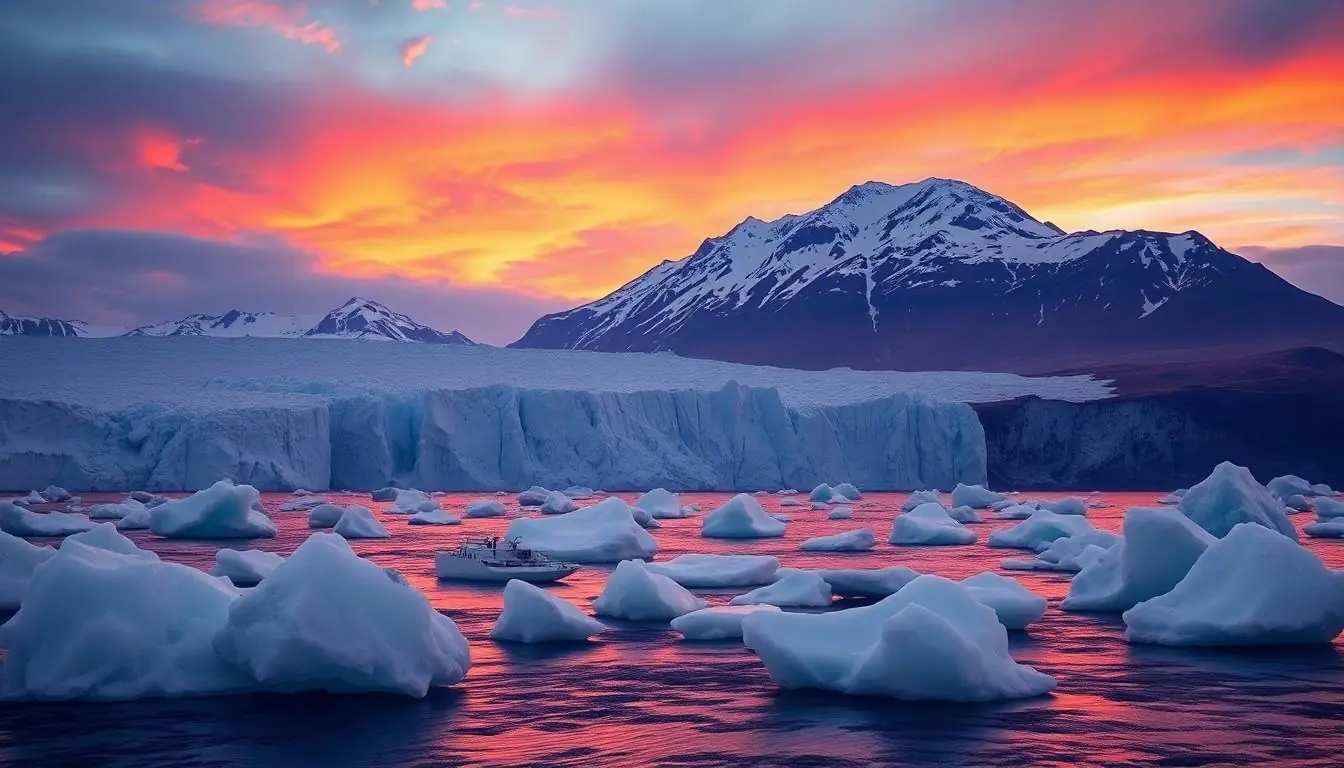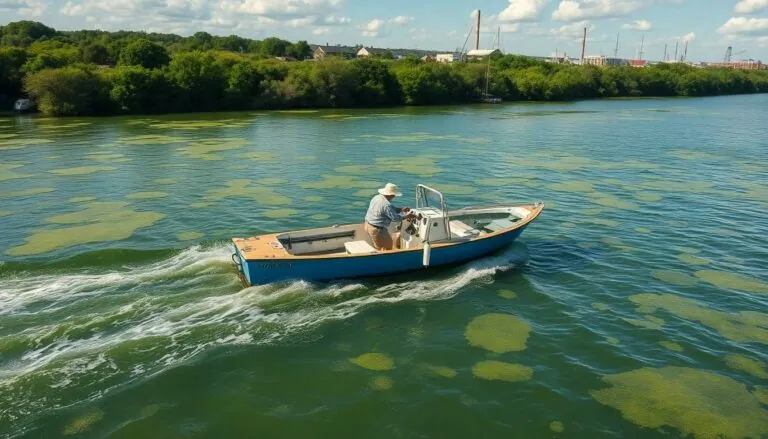In a world where the ice caps are melting faster than your favorite ice cream on a hot summer day, movies about climate change are stepping into the spotlight. These films don’t just entertain; they pack a punch, blending humor, drama, and a healthy dose of reality. Who knew that tackling the serious issue of climate change could come with a side of popcorn and a few laughs?
From animated adventures to gripping documentaries, these cinematic gems invite viewers to reflect on our planet’s future while keeping them on the edge of their seats. They challenge us to think, feel, and maybe even act—because if Hollywood can make saving the Earth look this good, who wouldn’t want to join the cause? Dive into this engaging world of storytelling that’s as entertaining as it is eye-opening, and discover how film can inspire change.
Table of Contents
ToggleOverview of Movies About Climate Change
Movies about climate change explore various aspects of environmental issues. They often blend entertainment with education, making complex topics accessible to a broad audience. Themes in these films include the scientific evidence of climate change, its impact on communities, and potential solutions to environmental crises.
Animated features like “Wall-E” illustrate the effects of pollution and consumerism through storytelling. Documentaries such as “An Inconvenient Truth” present facts and figures, helping viewers understand the urgency of the situation. Dramas like “The Day After Tomorrow” dramatize potential future scenarios, provoking thought about current actions.
Several films focus specifically on activism. “Chasing Ice” showcases the work of photographers capturing melting glaciers, emphasizing the ongoing effects of global warming. “This Changes Everything” highlights grassroots movements battling climate change and inspires viewers to participate.
Critically acclaimed movies not only entertain but also provoke emotional responses. These films encourage dialogue about sustainability and the responsibility of individuals and societies. Through humor, suspense, or tragedy, filmmakers engage audiences while advocating for change.
The film industry maintains a significant influence over public perception regarding climate change. By highlighting environmental challenges, these movies can drive conversations and motivate action on local and global levels. As cinema evolves, the portrayal of climate issues continues to gain prominence, shaping cultural narratives around environmental awareness.
Movies about climate change serve as a powerful medium to educate and inspire action. They not only address pressing concerns but also portray a variety of perspectives, fostering greater understanding and advocacy for the planet.
Notable Films Highlighting Climate Issues

Various films address climate change, each presenting unique perspectives and themes that resonate with viewers. They offer insights into the urgency of environmental issues and motivate civic engagement.
Documentaries That Inspire Action
Documentaries play a crucial role in raising awareness about climate change. “An Inconvenient Truth” showcases Al Gore’s advocacy efforts and illustrates the evidence supporting global warming. “Chasing Ice” captures stunning visuals of melting glaciers, emphasizing the stark consequences of climate change. “Before the Flood” features Leonardo DiCaprio as he travels the globe, highlighting solutions and urging action. These films present not just information, but calls to action that inspire viewers to join the fight for environmental justice.
Dramatizations and Fictional Narratives
Dramas often dramatize climate change scenarios, making the topic relatable and engaging. “The Day After Tomorrow” imagines a world ravaged by extreme weather events, raising awareness about real threats. “Interstellar” explores humanity’s struggle for survival, linking ecological collapse to interstellar travel. “Snowpiercer” depicts a post-apocalyptic future due to climate failure, prompting discussions on class and resource use. Each narrative captivates audiences while imparting messages about the need for sustainability and immediate action.
Impact on Public Awareness
Movies addressing climate change significantly shape public perception and awareness of environmental issues. Engaging narratives create emotional connections that help audiences grasp complex topics. Films like “An Inconvenient Truth” present data-driven evidence, fostering a better understanding of climate science. Documentaries and dramatizations bring urgency to discussions about ecological footprints and sustainability.
Influence on Audience Perception
Engaging films offer perspectives that resonate with diverse audiences. Viewers often connect emotionally to characters facing climate-related challenges, enhancing empathy. Cinematic portrayals of climate change, like those in “Wall-E,” simplify scientific concepts, making them accessible. Such representations can change feelings about personal responsibility regarding environmental issues. Effective storytelling encourages audiences to rethink their own behaviors and encourages active discussions about sustainability.
Role in Climate Activism
Climate-focused films inspire activism and motivate grassroots movements. Viewers often feel a sense of urgency after watching documentaries like “Chasing Ice,” prompting them to take action. Emotional narratives can spur individuals to participate in environmental campaigns and community projects. Films raise awareness about critical issues, encouraging audiences to engage in activism. By highlighting real-world challenges, the cinema cultivates a culture of environmental advocacy and social responsibility.
Critiques and Challenges
Movies about climate change face critiques regarding their representation of science and the balance between emotional and rational appeals.
Representation of Science
Films often simplify complex scientific concepts, aiming to engage a broader audience. Inaccuracies may emerge when dramatization takes precedence over factual integrity. Perspectives presented in films like “An Inconvenient Truth” encapsulate vital data on climate change. However, critics argue that oversimplified representations can lead to misunderstandings. Authenticity matters, as viewers rely on cinematic portrayals to shape their perceptions of environmental issues. Striking a balance between entertainment and scientific accuracy remains a critical challenge for filmmakers.
Emotional vs. Rational Appeals
Engaging viewers through emotional narratives often proves effective in climate change films. These emotional appeals can foster personal connections to environmental issues. However, the reliance on emotion can overshadow rational arguments and scientific evidence. Films like “Chasing Ice” evoke feelings of urgency, prompting immediate reactions. Balancing emotional storytelling with factual information becomes paramount to drive meaningful discourse. Rational appeals also play a significant role, influencing viewers’ understanding of climate impacts and potential solutions.
Future Trends in Climate Change Cinema
Innovative storytelling will dominate future climate change cinema. Filmmakers increasingly prioritize diverse genres, blending science fiction with documentaries to resonate with a wide audience. Animated movies are likely to continue captivating audiences while addressing urgent environmental themes, enhancing accessibility for younger viewers.
Cinematic technology improves, offering immersive experiences through virtual reality and augmented reality. Audiences may engage with climate narratives in interactive ways, driving empathy and understanding. Documentaries will expand their reach, using real-time data and innovative visuals to showcase the impacts of climate change effectively.
Grassroots activism will inspire more films centered on personal stories and local communities facing climate challenges. Viewers could connect deeply with narratives that document real-life struggles and triumphs. This approach fosters solidarity among individuals dedicated to environmental action.
Furthermore, collaborations with scientists and environmental experts are expected to increase. Enhanced accuracy will result in improved portrayals of climate science, establishing trust with audiences. Screenwriters and directors will likely integrate factual information more seamlessly into engaging narratives.
As filmmakers tackle complex themes, they may confront backlash over emotional storytelling. Striking a balance between emotional resonance and scientific rigor remains crucial. Future films should not shy away from addressing critical issues while ensuring that narratives stimulate informed discussions.
In addition, audiences can anticipate more global perspectives on climate narratives. Films from diverse cultures will highlight varied experiences and solutions, enriching the global conversation about climate change. Inclusion of multiple voices will strengthen the movement, encouraging collaboration across borders.
Finally, social media’s influence will shape marketing for climate change films. Viral campaigns will raise awareness, helping movies reach wider audiences. Engaging content on platforms like Instagram and TikTok can mobilize younger viewers around pressing environmental issues, amplifying calls to action.
Movies about climate change serve as powerful tools for education and inspiration. They entertain while sparking crucial conversations about environmental issues. By blending engaging narratives with factual content, these films have the potential to shift public perception and motivate action.
As filmmakers continue to innovate, the future of climate-focused cinema looks promising. Diverse storytelling approaches will likely resonate with broader audiences, fostering a culture of awareness and advocacy. The collaboration between filmmakers and scientists can enhance the authenticity of these narratives, ensuring the critical message of climate action remains clear.
Ultimately, these films not only reflect the urgency of the climate crisis but also empower viewers to take meaningful steps toward a sustainable future.





